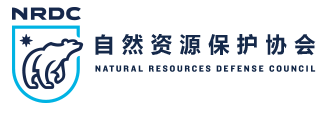On Thursday, the Standing Committee of the National People's Congress (NPC), China's top legislature, approved major amendments to the country's Environmental Protection Law (EPL), the first since the law was enacted 25 years ago.
These amendments are a game changer.
The original EPL entered into force shortly before I moved to Beijing in 1990. I recently found a journal entry written on my second day in the nation's capital, in which I marveled at the clean air and lack of private cars on the street. I later learned that Beijing had cleaned up in preparation for hosting the Asia Games, a tradition for high-publicity events that has continued to this day.

Nonetheless, China's pollution and environmental degradation had not yet reached the alarming levels found throughout the country today, and the EPL reflected that. Like many other laws in China at the time, the provisions of the EPL were vague and aspirational, containing only general requirements for such things as environmental impact assessments, the levying of fees, and pollution control measures. It was easy for polluting facilities to pay the minimal one-time fees and continue to pollute, while local officials looked the other way.
The new amendments to China's bedrock environmental law put powerful new tools into the hands of environmental officials and the public, providing a strong legal foundation to the "war on pollution" declared last month by Premier Li Keqiang. Most notably, the revisions make three critical improvements: 1) they add a new fine penalty system that will continue to accumulate for each day the pollution violations continue (by eliminating the previous one-off fine system); 2) they formalize a much-needed performance assessment system that is based on an official’s environmental protection record rather than solely on economic growth; and 3) they allow for nongovernmental organizations to take legal action against polluters on behalf of the public interest.
The new penalty system calls on local environmental protection bureaus to issue corrective orders and fines to violators and, beginning the day after the corrective order is issued, collect a fine for each day the violation continues, based on the original penalty amount. Local governments may strengthen these daily penalty provisions by enlarging the types of violations that are subject to continuous daily fines. (行政机关可以自责令改正之日的次日起,按照原处罚数额进行按日连续处罚。同时规定,地方性法规还可增加按日连续处罚的违法行为种类.)
Standing to bring public interest litigation will be extended to social groups that are registered with the Civil Affairs Agencies of Municipal People's Governments (with jurisdiction of districts) or above levels (in Chinese “在设区的市级以上人民政府民政部门登记的社会组织,” generally means the governments at prefecture (municipal) and above levels, including municipal (prefecture), provincial and central governments). If the provision is officially confirmed by the National People's Congress, the ability of Chinese NGOs to bring environmental suits on behalf of the public will be far broader than in any previous versions.
The amendments will give China's Ministry of Environmental Protection (MEP) greater legal authority to regulate and penalize polluters. Examples of actions that would meet harsher punitive measures include:
Skirting environmental impact assessments (EIAs) and refusing to suspend production after being issued a ban (violators can face up to 15 days detention);
Failure to obtain a pollutant discharge permit and/or refusing to suspend the discharge after being issued a ban; and,
Forging monitoring data or improperly operating pollution prevention equipment.
Organizations that conduct fraudulent EIAs will bear joint liability. Officials found guilty of misconduct could be demoted or removed from post.
The new amendments include provisions on transparency, such as requirements for real-time pollution data monitoring, and criminal penalties for those who evade such monitoring systems. They also encourage studies on the impact of environmental pollution on public health and urge the prevention and control of pollution-related diseases. The amendments encourage civic action in environmental pollution by setting protections for whistleblowers and declaring June 5 as Environment Day.
There were more than 20 new articles added to the original law of 1989. The new Environmental Protection Law will take effect on January 1, 2015.
We applaud the revisions, particularly those that promote greater transparency, fines that continue to accumulate as long as the pollution does, and broader standing to bring public interest litigation. As a former litigator for NRDC and the U.S. Department of Justice, I know from experience the power of these tools to bring violators into compliance. Once these new amendments come into effect, China will finally have a fighting chance in its war on pollution.
(Cowritten with my colleagues Christine Xu and Wang Yan. )


